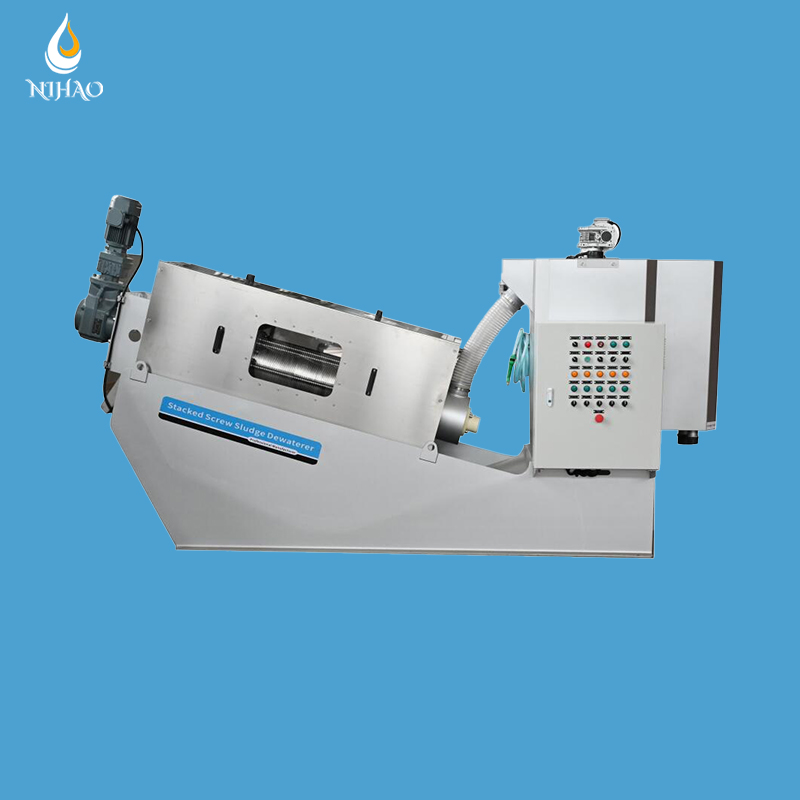 +86-15267462807
+86-15267462807
In the water treatment industry, sludge management poses a significant challenge for manufacturers and water treatment plants alike. As a reputable manufacturer and factory in this field, we understand the importance of innovative solutions to address sludge dewatering effectively.
Dewatering machines, such as our advanced Belt Filter Press, employ a sophisticated filtration mechanism to efficiently remove excess water from sludge. By utilizing a combination of gravity dewatering and pressure zones, this technology significantly reduces sludge volume and separates water from solid particles. As a result, water treatment plants experience enhanced efficiency in the dewatering process, leading to space optimization and reduced energy consumption during transportation.
Case Study - Municipal Wastewater Treatment Plant:
A municipal wastewater treatment plant faced challenges in handling a high volume of sludge generated daily. By implementing our Belt Filter Press, the plant achieved a 30% reduction in sludge volume, saving considerable costs on transportation and landfill disposal fees.
Our dewatering machines utilize adjustable pressure and compression zones to achieve optimal dryness in the dewatered sludge. By fine-tuning the dewatering parameters, water content is minimized, resulting in a higher dry solids concentration. This improvement not only makes the sludge easier to handle but also reduces the overall weight, contributing to cost savings in transportation and disposal.
Technical Insight - Belt Filter Press Design:
The design of our Belt Filter Press incorporates a wedge-shaped dewatering zone that efficiently dewaters the sludge. This ensures that the dewatered sludge retains a moisture content of less than 75%, meeting the stringent environmental regulations for disposal.
Incorporating dewatering machines into the sludge management process significantly reduces disposal costs. As the dewatered sludge is more compact and drier, the frequency of waste disposal is reduced, leading to substantial savings in transportation and landfill expenses.
Case Study - Industrial Wastewater Treatment Facility:
An industrial wastewater treatment facility installed our Belt Filter Press and experienced a 40% reduction in disposal costs due to the decreased frequency of waste disposal trips.
Our Belt Filter Press is designed with energy efficiency in mind. The advanced pneumatic tensioning system ensures minimal energy consumption during the dewatering process, optimizing operational costs without compromising performance.
Technical Insight - Pneumatic Tensioning System:
The pneumatic tensioning system in our Belt Filter Press utilizes compressed air to maintain constant belt tension, reducing energy consumption compared to traditional mechanical tensioning systems.
Our dewatering machines demonstrate exceptional versatility in handling various sludge types. Whether it's activated sludge from a municipal plant or industrial sludge with varying compositions, the Belt Filter Press can adapt to the specific requirements of each application.
Case Study - Food Processing Plant:
A food processing plant faced challenges in dewatering sludge with high oil and grease content. Our Belt Filter Press, with its adaptable design, efficiently dewatered the challenging sludge, ensuring compliance with local discharge regulations.
By reducing sludge volume and optimizing the dewatering process, our Belt Filter Press plays a crucial role in minimizing the environmental impact of sludge management. The reduced frequency of waste disposal trips also contributes to lower greenhouse gas emissions associated with transportation.
Technical Insight - Polymer Optimization:
The Belt Filter Press incorporates an advanced polymer optimization system, ensuring the efficient use of chemical additives during dewatering. This minimizes the environmental impact of the sludge dewatering process and reduces chemical consumption.